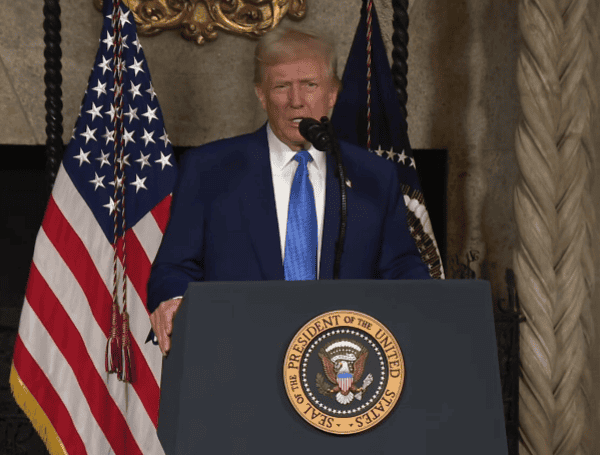A coalition of 21 states, led by Montana, filed an amicus curiae (friend of the court) brief today in the U.S. District Court for the Northern District of California, supporting the Trump administration’s defense against a lawsuit challenging its management of the federal workforce.
The lawsuit, filed by the American Federation of Government Employees, AFL-CIO, and others, seeks a temporary restraining order to halt reductions in force (RIFs) and other personnel actions across more than 20 federal agencies. The plaintiffs argue these actions are unlawful and will cause irreparable harm.
READ :Florida Supreme Court Denies Death Row Inmate Glen Rogers’ Appeal, Execution Set For May 15
The amicus brief, submitted by attorneys for the State of Montana and joined by 20 other states including Alabama, Texas, and Florida, argues strongly against the plaintiffs’ request, asserting that it would improperly interfere with the executive branch’s authority.
Separation of Powers: The states contend that the U.S. Constitution grants the President broad authority under Article II to manage the executive branch and its employees. They argue that the plaintiffs’ request would violate the separation of powers by inserting the judiciary into personnel decisions that are properly within the President’s purview.
Exclusive Statutory Scheme: The brief highlights the Civil Service Reform Act of 1978 (CSRA) as the comprehensive legal framework for addressing federal employment issues. The states argue that the CSRA provides the exclusive administrative and judicial review process for personnel actions like RIFs, precluding employees and their representatives from bringing such challenges directly in federal district court under other statutes like the Administrative Procedure Act (APA) or on constitutional grounds.
READ: US Department Of Education Launches Title IX Investigation Into Western Carolina University
Lack of Irreparable Harm: The states argue that the plaintiffs have failed to demonstrate the “genuinely extraordinary” irreparable harm required for a preliminary injunction in government personnel cases, citing Supreme Court precedent. They dismiss claims of lost wages and benefits as generally not constituting irreparable harm in this context and characterize arguments about potential impacts on services (like weather data) or the cessation of certain programs as speculative or unfounded.
Balance of Equities: The brief concludes that the balance of equities favors the defendants and the public interest. Granting an injunction, they argue, would irreparably harm the President’s ability to exercise his constitutional authority and implement policies aimed at making the federal government more efficient, a goal the states suggest aligns with public sentiment regarding government size and effectiveness.
The states’ intervention underscores the broader implications of the lawsuit, framing it as a significant challenge to the executive branch’s authority and the established legal framework for federal employment disputes.
The court is expected to consider these arguments as it decides on the plaintiffs’ motion for a temporary restraining order.
The 21 States are: Montana, Alabama, Alaska, Arkansas, Florida, Georgia, Idaho, Indiana, Iowa, Kansas, Mississippi, Missouri, Nebraska, North Dakota, Oklahoma, South Carolina, South Dakota, Tennessee, Texas, West Virginia, and the Arizona Legislature.
Please make a small donation to the Tampa Free Press to help sustain independent journalism. Your contribution enables us to continue delivering high-quality, local, and national news coverage.
Connect with us: Follow the Tampa Free Press on Facebook and Twitter for breaking news and updates.
Sign up: Subscribe to our free newsletter for a curated selection of top stories delivered straight to your inbox.
